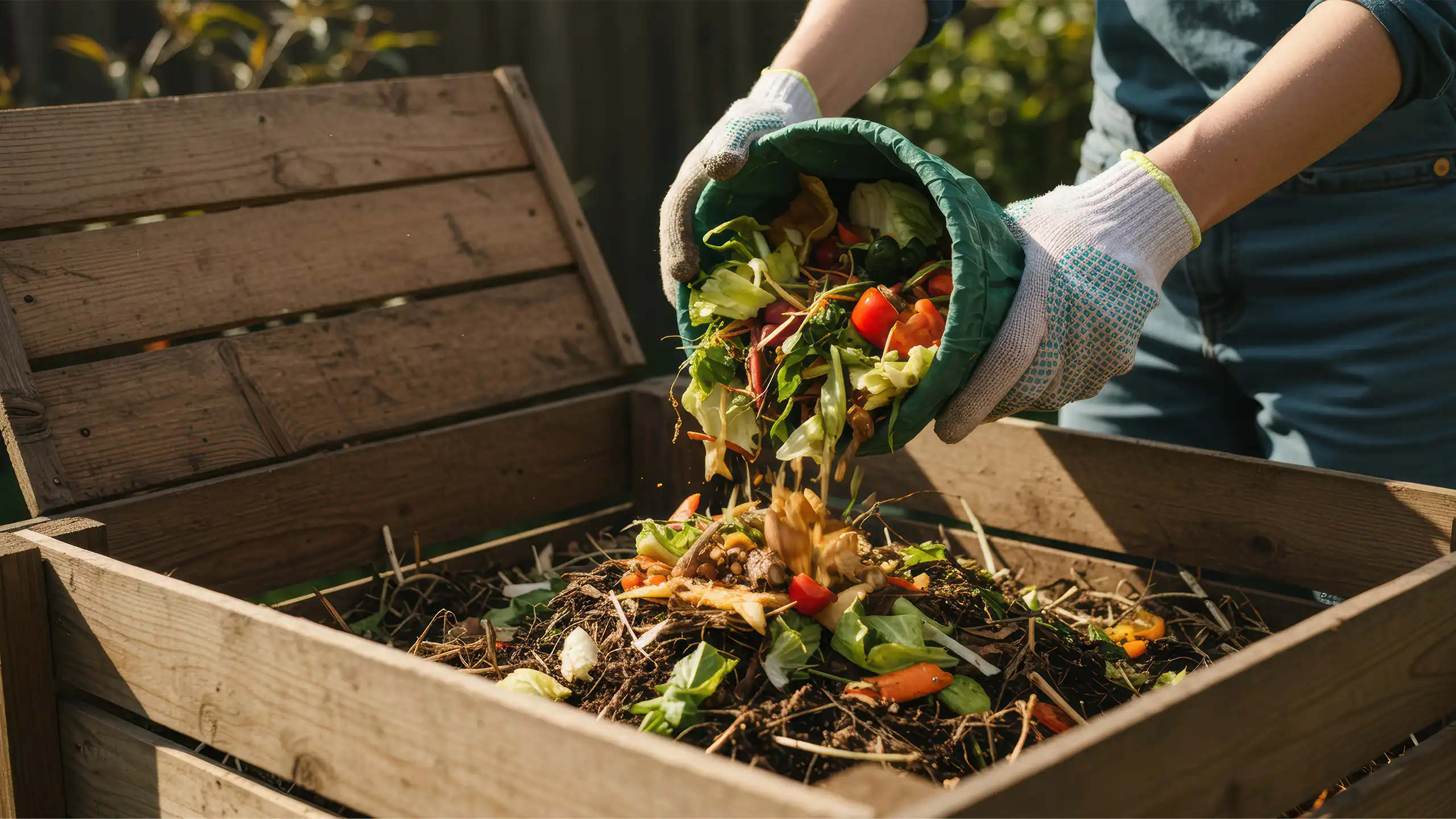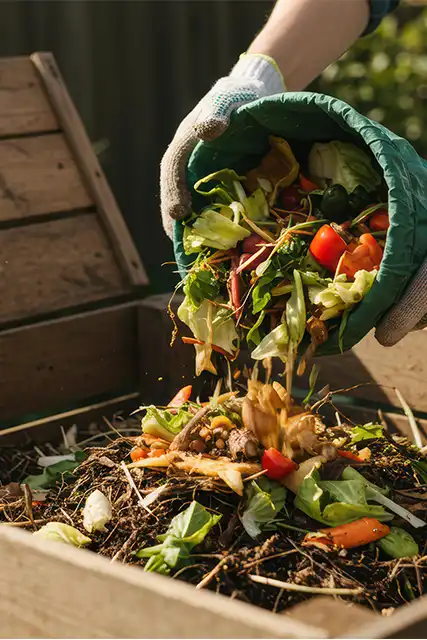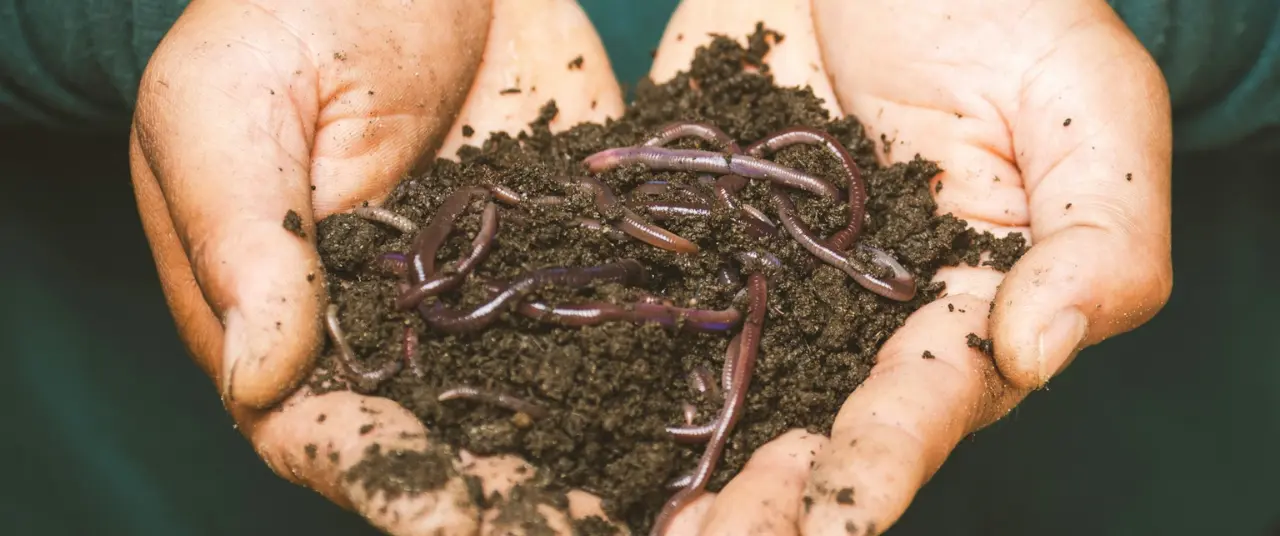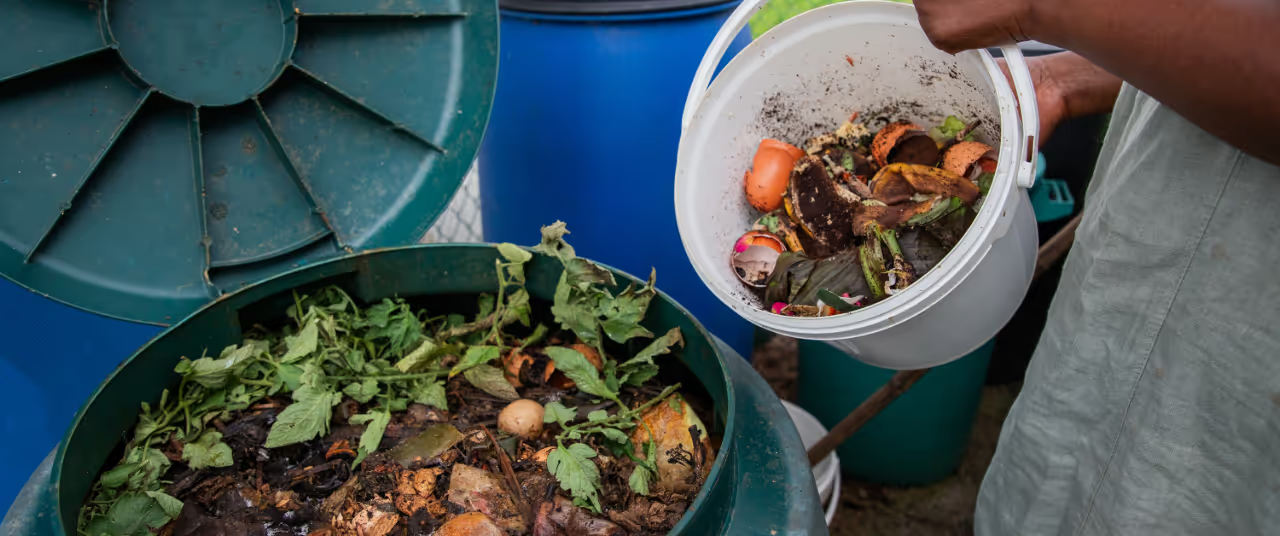From housing societies, to hospitals, to temples, composting is having its moment in the sun






Editor's Note: In this series, the Good Food Movement explores composting—a climate-friendly, organic way to deal with waste. We answer questions about what you can compost, how to build composting bins and how this process can reshape our relationship with nature and our urban ecosystem.
Every small action we take creates ripples in a larger chain of change—whether it’s rethinking what we eat or how we confront the waste our cooking leaves behind. Too often, that waste becomes someone else’s burden, carted away to landfills in urban and rural spaces alike, already overflowing with trash.
But there’s another way. Through regenerative practice like composting, what seems like waste can be reused and returned to the earth. Even in cramped spaces, all it really takes is a bin and patience. And when people come together, the impact multiplies. From housing societies in Mumbai to individuals inspiring entire communities in Bengaluru, composting has helped turn everyday scraps into rich nourishment for the soil—nurturing potted plants, neighbourhood gardens, and local trees.
United we compost
Green Garden Apartments, a 73-bungalow community in Chembur in suburban Mumbai once sent 600 kg of mixed waste every month to landfills. In 2018, the apartment complex embraced zero-waste living, segregating waste and composting organic content to produce 100 kg of compost each month. At Silver Crest, Powai, residents process organic waste onsite, using compost for landscaping and donating the surplus to farmers.
In Bengaluru’s Mantri Paradise complex, housekeeping staff now spend a couple of hours each day tending to aerobins that transform used tea leaves, fruit peels, and vegetable scraps into 60 kg of rich, earthy compost. This has led to monthly savings of roughly ₹15,000 on manure purchases and the elimination of foul odours, all thanks to twelve community-installed composters and diligent waste segregation.
Also read: Can composting be the solution to expanding landfills in cities like Bengaluru?
Even the country’s temples are changing their relationship with waste. In Mumbai, the Shree Parleshwar and Mahalakshmi temples pack offerings of marigold and jasmine into boxes of culture mix, producing compost in three weeks. In Tamil Nadu, the Mission Sunehra Kal initiative has 182 temples transforming their floral offerings into rich manure for their own gardens.
Educational institutions are increasingly prioritising waste management as well. Organisations such as the Vivekanand Education Society, Guru Nanak Khalsa College of Arts, Science and Commerce, and Ashoka University, along with several schools and hospitals in cities like Pune and Bengaluru, have launched initiatives to responsibly manage their waste. Hospitals too—such as Cooper Hospital in Mumbai and the Artificial Limb Centre in Pune—have begun composting efforts to handle their waste more sustainably.
Urban composting champions
Additionally, numerous individuals are experimenting with composting in their own homes and communities, showing that it doesn’t take much to get started. No matter what the scale, their efforts prove that composting can fit into any lifestyle.
- Rajinder Singh – Ludhiana’s green veteran
After retirement, Rajinder Singh turned to terrace gardening. When his plants initially failed, instead of hiring help, he learned plant care himself. Today, his lush rooftop boasts over 500 plants—fruits, vegetables, and flowers—all nourished by the 100 kg of compost he produces from household waste.
- Khushi Kumari – Bihar’s cleanliness champion
Faced with waste piling up in mounds outside her Khagual home, Kumari embraced a sustainable waste management program in 2017. She began composting kitchen scraps, growing her own produce, and reusing containers. Her leadership inspired 350 households to adopt composting, cutting open dumping by 60% and creating cleaner, safer streets.
- Kedar Sohoni – Mumbai’s waste mentor
Starting small, Sohoni learned how kitchen waste could become a resource. He introduced composting to his 220-unit housing society, converting 72 tonnes of organic waste. In 2017, he founded the Green Communities Foundation, supporting over 220 housing societies and diverting 4,000 tonnes of waste from landfills through aerobic composting.
- Lalitha Akka – Transforming Buragunte
In Buragunte, a village tucked into the fringes of Sarjapura, under the quiet insistence of Lalitha Akka, a shift began. What if, she asked, the leftovers didn’t have to vanish into some distant, smoking heap? The women in her village brainstormed. They began to pile their kitchen scraps into small pits behind their homes, and weeks later, they harvested compost that they folded back into the fields.
- Vani Murthy – Bengaluru’s Worm Rani
Meanwhile, in the digital sphere, “Worm Rani” has become an Instagram star. With over 300,000 followers, Vani Murthy’s reels demystify composting and sustainable living. From her terrace workshops to speaking about using reusable steel cups, she models a life where composting is less an eco-chore and more a meaningful daily ritual.
Inspired by Worm Rani, composting warrior Anisha Nayak began her own journey from reluctance to triumph. Her balcony, once a storage space, is now home to a terracotta compost setup—later upgraded to a sleek Khamba unit from Daily Dump. Two years later, not a scrap of green waste leaves her home.
Also read: Setting up a compost bin at home: Do’s and don’ts for feed and airflow
How you can join
From professional waste management companies like Earth5R, DailyDump, Sampurn(e)rth, RUR Greenlife, My Green Bin, and Green Legion, to municipal programs offering composting kits and collection services, help is everywhere.
If you feel intimidated, start small. Pick a composting method that works for your space. Engage with your community. Share your results. Because you’re not alone. And your bin might just inspire your apartment building, your college, your city.
Also read: The science of scraps: How to get composting right
{{quiz}}
Explore other topics
References











